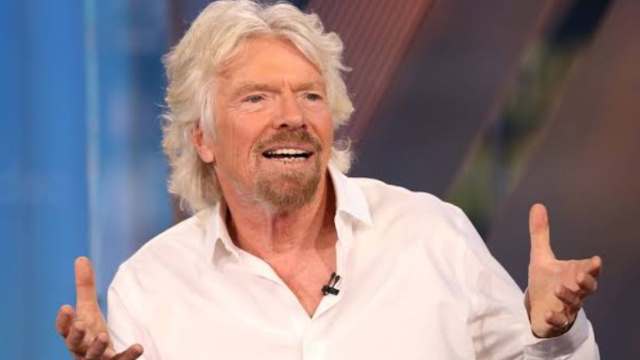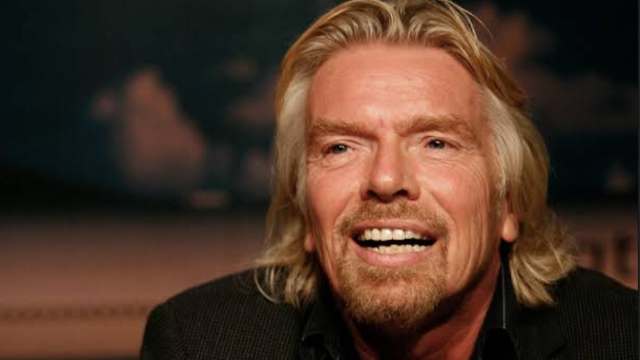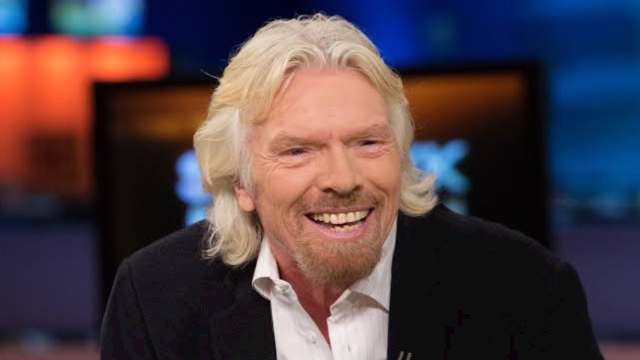Sir Richard Branson, a daring and charismatic entrepreneur, is the founder of Virgin Group, a multinational conglomerate that encompasses over 40 companies spanning a wide array of industries.
His remarkable journey from an ambitious teenager to a billionaire mogul is a testament to his relentless drive, innovative ideas, and a knack for turning unorthodox concepts into successful businesses.
Early Years and Entrepreneurial Beginnings
Born on July 18, 1950, in London, England, Richard Branson showed early signs of entrepreneurship. At the age of 16, Branson dropped out of school and started his first venture, a student magazine called Student, which interviewed famous personalities.

Despite being a modest publication, it sold advertising worth nearly $8,000, which gave Branson the confidence to explore more business ideas.
In 1969, Branson transitioned into the mail-order record business. Operating out of the same office that housed his magazine, he founded Virgin in 1970, with the brand name symbolizing his inexperience in the business world.
What began as a simple record business soon evolved into a major global player in the music industry.
The 1970s: Virgin Records and Early Success
By 1972, Branson had expanded from selling records by mail to opening 14 Virgin record stores. In the same year, he established Virgin Records, which gained significant recognition by signing top artists, including the Sex Pistols.
The company’s success grew exponentially, and by 1973, Virgin’s first major hit, Tubular Bells by Mike Oldfield, sold over five million copies, propelling Branson to his first million-dollar earnings.
Virgin Records was an innovative force in the music industry, bringing in unconventional acts such as the Sex Pistols and The Rolling Stones. This boldness helped Virgin become one of the top six record labels globally by the end of the decade.
Meanwhile, in 1979, Branson acquired Necker Island in the British Virgin Islands for $180,000. This island would eventually become the centerpiece of his luxury property portfolio, Virgin Limited Edition.
The 1980s: Virgin Atlantic and Expanding the Brand
The 1980s marked a period of diversification for Branson. In 1981, he launched Virgin Books and Virgin Video, expanding into publishing and video retail.
His next major move was the creation of Virgin Atlantic in 1984, a new airline that set out to disrupt the air travel industry with excellent customer service and unique perks like seat-back video screens and in-flight massages.
The airline faced challenges but ultimately gained a loyal customer base, reinforcing Branson’s reputation as a bold businessman willing to take risks. By the mid-1980s, Virgin Group’s various ventures had resulted in over 50 companies with combined revenues exceeding $17 million.

The 1990s: Selling Virgin Records and Further Expansion
The early 1990s brought significant challenges for Branson. In 1992, to keep Virgin Atlantic afloat amid financial struggles, he sold Virgin Records for $1 billion. The sale was a pivotal moment for Branson, as he had to let go of a beloved business to ensure the survival of his airline.
Branson also faced tough competition from British Airways, which waged a campaign to damage Virgin’s reputation. In response, Branson sued British Airways for libel, winning a settlement of nearly $1 million and legal fees.
Despite these challenges, Branson launched Virgin Trains in 1996, further cementing Virgin’s status as a diverse conglomerate.
During this time, Branson also achieved global recognition, being named one of Time magazine’s 100 most influential people in 2007 and being knighted by the Queen of England in 2000.
The 2000s: Virgin Mobile and Space Tourism
In 2001, Branson ventured into the telecommunications market by launching Virgin Mobile as a joint venture with Sprint Nextel. This expansion into mobile services allowed him to continue building his empire.
Branson’s interest in technology and space led him to partner with Burt Rutan in 2004 to form Virgin Galactic, a company aimed at commercial space travel. The idea was revolutionary: to provide private citizens the opportunity to experience space tourism.
After years of development and some setbacks, including a tragic accident in 2014, Virgin Galactic made significant strides.
Branson and his team succeeded in launching successful crewed spaceflights, culminating in Branson’s own trip to space aboard VSS Unity in 2021.
Philanthropy and Legacy
Alongside his business ventures, Branson has been an active philanthropist. He established Virgin Unite, a non-profit organization that tackles global issues such as HIV/AIDS and environmental sustainability.
Branson’s philanthropic efforts also include the Branson Center of Entrepreneurship, which focuses on fostering entrepreneurship in developing countries.
Branson’s personal brand is built around his adventurous spirit and willingness to take risks.
He has become an icon of daring entrepreneurship and is known for his endeavors that go beyond the corporate world—such as attempting to break world records in air and sea travel.
Net Worth and the Virgin Empire
As of 2024, Branson’s net worth is estimated to be $2.7 billion. This wealth primarily stems from his ownership stake in Virgin Group, including Virgin Galactic, Virgin Mobile, Virgin Hotels, and numerous other businesses.
While his fortune has fluctuated over the years due to the ups and downs of his ventures, Branson remains one of the wealthiest individuals globally.
His wealth is also tied to Virgin Enterprises, which manages the licensing of the Virgin brand.
This brand value has grown exponentially, as Virgin Group’s businesses continue to thrive in industries as diverse as airlines, telecommunications, health clubs, and even space tourism.





